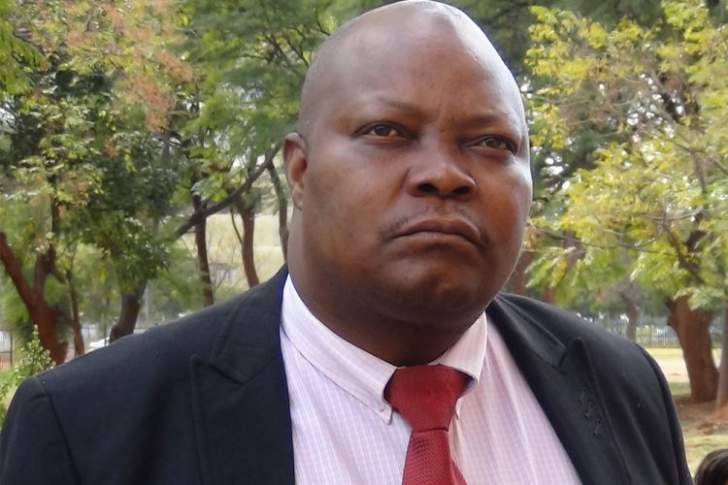By Richard Gandari
The notion of negative peace is hardly discussed until a pivotal incident provides the butterfly effect that ignites open conflict.
The Arab Spring of 2011, was sparked by the daring act of Mohamed Bouazizi, a Tunisian vendor who set himself on fire on 17 December, 2010, in protest over police harassment. Sitting on his golden throne in Tripoli, Libyan strongman Muammar Gaddafi probably ignored news of the incident, seeing no way it could lead to his demise.
In February 2011, the Arab Spring emerged in Libya through a government sit-in protest in Benghazi. Gaddafi laughed it off and labelled the protesters as rats that he would mercilessly crash. Yet on 20 October, 2011, it was Gaddafi himself who was dragged feet-first like a rat, from a storm drain in Sirte, by marauding rebels baying for his blood. Gaddafi was lynched and killed within hours.
The conditions that led to the Arab Spring in Tunisia are more or less the same as what is prevailing in Zimbabwe today. Mr Mnangagwa’s patrimonial and spoils-centered government is an exact clone of the Zine El Abidine Ben Ali regime toppled by the first wave of the Arab Spring. After 23 years in power, Ben Ali and his cronies had woven an intricate network of patronage characterized by nepotism, corruption and incompetence. The army and police forces in Ben Ali’s Tunisia were equally monumental echo chambers of cluelessness and ineptitude. The icing on the evil cake was the Tunisian state media, a shameless lapdog for the dictator and his cabal. Zimbabweans can relate to all of the above. The only thing missing from Zimbabwe is a Mohamed Bouazizi with a litre of petrol.
Fortunately for Mr Mnangagwa, even if a Bouazizi was to materialize in Zimbabwe, it might be safe to argue that his self-immolation would not be enough to incite popular unrest. Zimbabweans are a restive but docile populace. Recent media reports indicate that in Zimbabwe, authorities arrested Blessing Mhembere, a 22-year-old man and charged him with the subverting constitutional government after he allegedly advocated for the overthrowing of President Emmerson Mnangagwa’s government through unconstitutional means. Mhembere is accused of moving around a bus terminus at Makoni Shopping Centre in Chitungwiza and shouting at the top of his voice, mobilizing people to “remove President Mnangagwa and ZANU PF from power.” He is also accused of inviting anyone with guns to join him in waging an armed insurrection.
However, a visit to Makoni Shopping Centre today would show that it is business as usual at the bustling hive of commercial activity. Nothing has changed. Not even on the day of Mhembere’s arrest did the commerce stop. Zimbabweans surviving on hand-to-mouth daily have practically tuned out of anything that does not directly put food on their tables. Some do not even have tables to begin with, such that Mhembere’s shouting would fall on deaf ears even if the police were to allow him to knock himself out daily. Elsewhere, reports of his daring act of defiance were just another news item and an easy topic for pub talk. Zimbabwe is a unique society, where every individual lives for himself or herself alone, without concern for the next person.
For now, there is no formal anthropological evidence to explain the detachment of Zimbabweans at the individual level but its results are clear for all to see. There is no outrage over the Gukurahundi genocide, enforced disappearances, assassinations and politically motivated murders of opposition figures since Independence in 1980. No one can galvanise such a deeply divided people. Social movements can only rise from unity. Without unity, individuals continue to suffer alone with no end in sight. Apart from citizenship, no two Zimbabweans are standing on common ground. The Soviet-styled and Taliban-inspired ZANU PF regime has taken advantage of this unique detachment phenomenon to consolidate its grip on all the levers of power in Zimbabwe.
External solidarity from regional and continental bodies like SADC and the AU cannot be viable where there is no internal solidarity. The Secretary General of the United Nations cannot call for the unconditional release of a political prisoner like Job Sikhala from pretrial detention if no Zimbabweans are clamouring for his freedom. Following Zimbabwe’s disputed elections in August 2023, the recent congratulatory messages emanating from SADC ambassadors are signs of general fatigue and resignation over Zimbabwe’s unending political crisis. Any hopes the opposition had pinned on regional intervention have collapsed. The writing is on the wall: it is the responsibility of Zimbabweans, first and foremost, to demand the restoration of their human rights and dignity. There is no saviour out there, no disrespect to Mr Kasukuwere.
The cold hard truth is that Zimbabweans should start caring about one another. There is strength in unity and the regime in Harare knows that. That is why it encourages and sponsors divisions in all spheres of Zimbabwean life. It is not so difficult to see the hidden hand of ZANU PF behind the factional splitting of opposition parties. The regime is responsible for the splitting of churches, trade unions and even musical bands. No institution is spared from the seeds of disharmony sowed clandestinely by ZANU PF agents. The return to unity requires the wholesale rejection of ZANU PF, through constitutional means. This points to elections but does not preclude other constitutional provisions such as the freedom of expression and the freedom of association.
Zimbabweans should use their freedom of expression to speak truth to power and denounce any acts of malpractice that are linked to state actors, synonymous with ZANU PF. Again, Zimbabweans should utilize their freedom of assembly to organize town hall meetings where political debates are held to force service delivery and convey policy alternatives. Zimbabweans may appear largely docile but one day they might spontaneously snap out of their collective trance. Woe unto those who will be in power on that day.

